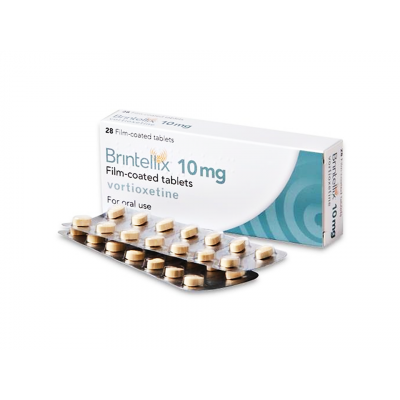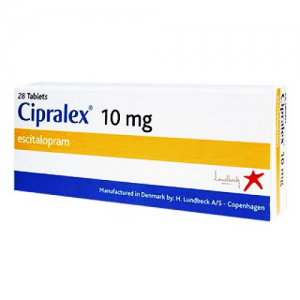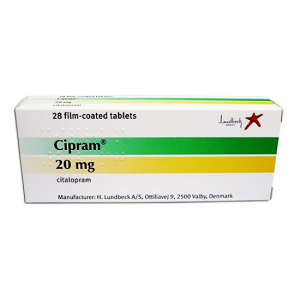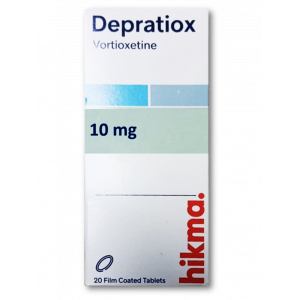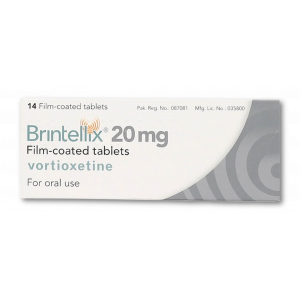- Anti-hestaminic & Respiratory Drugs (20)
- Anti-inflammatory Drugs (197) +-
- Baby & Mom (1339) +-
- Baby & Mom > Bath, skin & Hair > Skin Care > wibes (52)
- Beauty (3119) +-
- Beauty > Skin Care > whitening (309)
- Chemotherapy & Immune Response (885) +-
- Chemotherapy & Immune Response > ANTI-FUNGAL (11)
- Chemotherapy & Immune Response > Chemotherapeutic Agents > Hormone Antagonists >Enzyme Inhibitors (290)
- CIRCULATORY DISTURBANCE AGENTS (24)
- Diet & Fitness Products (284) +-
- DRUG AFFECTING CENTRAL NERVOUS SYSTEM (191)
- HEMATOLOGY (39)
-
Medical Supplies (506)
+-
- Chemicals & Disinfectants (19)
- Dental Supplies (31)
- Devices & Instruments (11)
- Diabetic Supplies (121)
- General Medical Supplies (21)
- I.V & Medical Solution (0)
- Intensive Care Unit & Anesthesia Supplies (0)
- KIDNEY UNIT SUPPLIES (21)
- Lab Supplies (3)
- Miscellaneous (21)
- Neonatal Unit Supplies (0)
- Operation Room Supplies (2)
- Sanitary (5)
- Sterilization Supplies (1)
- Surgical Sutures (4)
- Syringes (3)
-
Medicines & Health (2721)
+-
- Allergy & Sinus (95)
- Children's Health Care (54)
- Cough, Cold & Flu (281)
- Digestive Health & Nausea (231)
- Ear, Nose & Throat Care (179)
- Eye Care (124)
- Feminine Care (323)
- Foot Care (12)
- Orthopaedic Appliances (1)
- Pain Relief & Management (244)
- Pill Organizer (2)
- Skin Treatments (863)
- Sleep & Snoring Aids (2)
- Support & Braces (8)
- Medicines & health > Gout releif (42)
- Natural & Organic Products (81) +-
- OTC > Analgesics > Anti-inflammatory Drugs (44)
-
Personal Care (3346)
+-
- Bath & Body (271)
- Deodorant & Anti-perspirants (191)
- Ear, Nose & Throat Care (175)
- Eye Care (131)
- Feminine Care (372)
- Foot Care (20)
- Hair Care (503)
- Home Tests & Monitorings (14)
- Incontinence (7)
- Lip Care (26)
- Massage & Relaxation (17)
- Natural & Organic Personal Care (7)
- Oral Care (91)
- Pregnancy & Fertility (64)
- Shaving & Grooming (75)
- Sun Care (80)
-
Prescription Drugs (2932)
+-
- Analgesics (184)
- Cardiovascular System (374)
- Drugs Affecting Musculoskeletal System (65)
- Drugs Used In Infections (56)
- Ear & Nose Drugs (2)
- Endocrine System (177)
- Gastrointestinal Tract (243)
- Gastrointestinal Tract > Hepatology > Liver treatment (60)
- GYNECOLOGY (2)
- Miscellaneous (11)
- NEPHROLOGY > URINARY SYSTEM > RENAL DISORDERS > URINARY TRACT DISORDERS (47)
- NEUROLOGY (228)
- Nutrients & Blood Electrolytes (2)
- Respiratory System (154)
- SKIN > NAILS > HAIR > TOPICAL PREPARATIONS (115)
- Vaccines (1)
- Prescription drugs > Cardiovascular system > Anti-hypertension drugs (242)
- Sexual Wellness (304) +-
- Vitamins & Minerals Supplements (1225) +-
Ex Tax: 364EGP
Example
You can return the product within 14 days of purchase.
ReturnsYou can return the product within 14 days of purchase.

BRINTELLIX 10 MG ( VORTIOXETINE ) 14 FILM-COATED TABLETS
--Brand Name--
US Brand Name: Trintellix
--Description--
Vortioxetine is used to treat major depressive disorder (MDD). It is an antidepressant and belongs to a group of medicines known as selective serotonin reuptake inhibitors (SSRIs). Vortioxetine works by increasing the activity of a chemical called serotonin in the brain.
This medicine is available only with your doctor's prescription.
This product is available in the following dosage forms: Tablet
--Before Using--
In deciding to use a medicine, the risks of taking the medicine must be weighed against the good it will do. This is a decision you and your doctor will make. For this medicine, the following should be considered:
Allergies
Tell your doctor if you have ever had any unusual or allergic reaction to this medicine or any other medicines. Also tell your health care professional if you have any other types of allergies, such as to foods, dyes, preservatives, or animals. For non-prescription products, read the label or package ingredients carefully.
Pediatric
Appropriate studies have not been performed on the relationship of age to the effects of vortioxetine in the pediatric population. Safety and efficacy have not been established.
Geriatric
Appropriate studies performed to date have not demonstrated geriatric-specific problems that would limit the usefulness of vortioxetine in the elderly. However, elderly patients are more likely to have hyponatremia (low sodium in the blood), which may require caution for patients receiving vortioxetine.
Breastfeeding
There are no adequate studies in women for determining infant risk when using this medication during breastfeeding. Weigh the potential benefits against the potential risks before taking this medication while breastfeeding.
Drug Interactions
Although certain medicines should not be used together at all, in other cases two different medicines may be used together even if an interaction might occur. In these cases, your doctor may want to change the dose, or other precautions may be necessary. When you are taking this medicine, it is especially important that your healthcare professional know if you are taking any of the medicines listed below. The following interactions have been selected on the basis of their potential significance and are not necessarily all-inclusive.
Using this medicine with any of the following medicines is not recommended. Your doctor may decide not to treat you with this medication or change some of the other medicines you take.
- Isocarboxazid
- Linezolid
- Mavorixafor
- Methylene Blue
- Metoclopramide
- Ozanimod
- Phenelzine
- Procarbazine
- Rasagiline
- Safinamide
- Selegiline
- Tranylcypromine
Using this medicine with any of the following medicines is usually not recommended, but may be required in some cases. If both medicines are prescribed together, your doctor may change the dose or how often you use one or both of the medicines.
- Abciximab
- Abiraterone Acetate
- Abiraterone Acetate, Micronized
- Aceclofenac
- Acemetacin
- Acenocoumarol
- Alfentanil
- Almotriptan
- Amineptine
- Amitriptyline
- Amitriptylinoxide
- Amoxapine
- Amphetamine
- Amtolmetin Guacil
- Anagrelide
- Anileridine
- Apalutamide
- Apixaban
- Ardeparin
- Argatroban
- Aspirin
- Atazanavir
- Bemiparin
- Benzhydrocodone
- Benzphetamine
- Betrixaban
- Bivalirudin
- Bromfenac
- Brompheniramine
- Bufexamac
- Buprenorphine
- Bupropion
- Buspirone
- Butorphanol
- Cangrelor
- Carbamazepine
- Celecoxib
- Certoparin
- Chlorpheniramine
- Choline Salicylate
- Cilostazol
- Citalopram
- Clomipramine
- Clonixin
- Clopidogrel
- Cobicistat
- Cocaine
- Codeine
- Cyclobenzaprine
- Dabigatran Etexilate
- Dacomitinib
- Dalteparin
- Danaparoid
- Darunavir
- Desipramine
- Desirudin
- Desmopressin
- Desvenlafaxine
- Dexibuprofen
- Dexketoprofen
- Dextroamphetamine
- Dextromethorphan
- Dibenzepin
- Diclofenac
- Difenoxin
- Diflunisal
- Dihydrocodeine
- Diphenoxylate
- Dipyridamole
- Dipyrone
- Dolasetron
- Doxepin
- Drotrecogin Alfa
- Droxicam
- Duloxetine
- Edoxaban
- Eletriptan
- Enoxaparin
- Enzalutamide
- Epoprostenol
- Eptifibatide
- Escitalopram
- Eslicarbazepine Acetate
- Ethylmorphine
- Etodolac
- Etofenamate
- Etoricoxib
- Felbinac
- Fenfluramine
- Fenoprofen
- Fentanyl
- Fepradinol
- Feprazone
- Floctafenine
- Fluconazole
- Flufenamic Acid
- Fluoxetine
- Flurbiprofen
- Fluvoxamine
- Fondaparinux
- Fosphenytoin
- Frovatriptan
- Gepirone
- Granisetron
- Heparin
- Hydrocodone
- Hydromorphone
- Hydroxyamphetamine
- Hydroxytryptophan
- Ibuprofen
- Iloprost
- Imipramine
- Indomethacin
- Iobenguane I 131
- Ivosidenib
- Ketobemidone
- Ketoprofen
- Ketorolac
- Lasmiditan
- Lepirudin
- Levomilnacipran
- Levorphanol
- Lisdexamfetamine
- Lithium
- Lofepramine
- Lorcaserin
- Lornoxicam
- Loxoprofen
- Lumacaftor
- Lumiracoxib
- Meclofenamate
- Mefenamic Acid
- Melitracen
- Meloxicam
- Meperidine
- Metaxalone
- Methadone
- Methamphetamine
- Methylphenidate
- Milnacipran
- Mirtazapine
- Mitotane
- Morniflumate
- Morphine
- Morphine Sulfate Liposome
- Nabumetone
- Nadroparin
- Nalbuphine
- Naproxen
- Naratriptan
- Nefazodone
- Nepafenac
- Nicomorphine
- Niflumic Acid
- Nimesulide
- Nimesulide Beta Cyclodextrin
- Nortriptyline
- Oliceridine
- Ondansetron
- Opipramol
- Opium
- Opium Alkaloids
- Oxaprozin
- Oxycodone
- Oxymorphone
- Oxyphenbutazone
- Palonosetron
- Papaveretum
- Parecoxib
- Paregoric
- Parnaparin
- Paroxetine
- Pentazocine
- Phenindione
- Phenprocoumon
- Phenylbutazone
- Phenytoin
- Piketoprofen
- Piritramide
- Piroxicam
- Pixantrone
- Pranoprofen
- Prasugrel
- Proglumetacin
- Propyphenazone
- Proquazone
- Protein C
- Protriptyline
- Quinidine
- Ranolazine
- Remifentanil
- Reviparin
- Rifampin
- Rifapentine
- Ritonavir
- Rivaroxaban
- Rizatriptan
- Rofecoxib
- Salicylic Acid
- Salsalate
- Selexipag
- Sertraline
- Sibutramine
- Sodium Salicylate
- St John's Wort
- Sufentanil
- Sulfinpyrazone
- Sulindac
- Sulodexide
- Sumatriptan
- Tapentadol
- Tenoxicam
- Tianeptine
- Tiaprofenic Acid
- Ticagrelor
- Ticlopidine
- Tilidine
- Tinzaparin
- Tirofiban
- Tolfenamic Acid
- Tolmetin
- Tramadol
- Trazodone
- Treprostinil
- Trimipramine
- Tryptophan
- Valdecoxib
- Venlafaxine
- Vilazodone
- Vorapaxar
- Warfarin
- Ziprasidone
- Zolmitriptan
Other Interactions
Certain medicines should not be used at or around the time of eating food or eating certain types of food since interactions may occur. Using alcohol or tobacco with certain medicines may also cause interactions to occur. Discuss with your healthcare professional the use of your medicine with food, alcohol, or tobacco.
Other Medical Problems
The presence of other medical problems may affect the use of this medicine. Make sure you tell your doctor if you have any other medical problems, especially:
- Bipolar disorder (mood disorder with mania and depression), or risk of or
- Bleeding problems or
- Glaucoma, angle closure or
- Hyponatremia (low sodium in the blood) or
- Mania or hypomania, history of or
- Seizures, history of or
- Sexual problems—Use with caution. May make these conditions worse.
--Proper Use--
Take this medicine only as directed by your doctor. Do not take more of it, do not take it more often, and do not take it for a longer time than your doctor ordered.
This medicine should come with a Medication Guide. It is very important that you read and understand this information. Be sure to ask your doctor about anything you do not understand.
You may take this medicine with or without food. Take this medicine at the same time each day.
Dosing
The dose of this medicine will be different for different patients. Follow your doctor's orders or the directions on the label. The following information includes only the average doses of this medicine. If your dose is different, do not change it unless your doctor tells you to do so.
The amount of medicine that you take depends on the strength of the medicine. Also, the number of doses you take each day, the time allowed between doses, and the length of time you take the medicine depend on the medical problem for which you are using the medicine.
For oral dosage form (tablets):
►For depression:
- Adults—At first, 10 milligrams (mg) once a day. Your doctor may adjust your dose as needed and tolerated. However, the dose is usually not more than 20 mg per day.
- Children—Use and dose must be determined by your doctor.
Missed Dose
If you miss a dose of this medicine, take it as soon as possible. However, if it is almost time for your next dose, skip the missed dose and go back to your regular dosing schedule. Do not double doses.
Storage
Store the medicine in a closed container at room temperature, away from heat, moisture, and direct light. Keep from freezing.
Keep out of the reach of children.
Do not keep outdated medicine or medicine no longer needed.
Ask your healthcare professional how you should dispose of any medicine you do not use.
--Precautions--
It is important that your doctor check your progress at regular visits to allow changes in your dose and help reduce any side effects. Blood and urine tests may be needed to check for unwanted effects.
Do not take vortioxetine if you have taken a monoamine oxidase (MAO) inhibitor (eg, Eldepryl®, Marplan®, Nardil®, Parnate®), methylene blue injection, or linezolid in the past 14 days. Do not start taking a MAO inhibitor within 21 days of stopping vortioxetine. If you do, you may develop confusion, agitation, restlessness, sudden high body temperature, extremely high blood pressure, or severe convulsions.
Vortioxetine may cause some teenagers and young adults to be agitated, irritable, or display other abnormal behaviors. It may also cause some people to have suicidal thoughts and tendencies or to become more depressed. Some people may have trouble sleeping, get upset easily, have a big increase in energy, or start to act reckless. If you or your caregiver notice any of these unwanted effects, tell your doctor right away. Let the doctor know if you or anyone in your family has bipolar disorder (manic-depressive) or has tried to commit suicide.
Vortioxetine may cause a serious condition called serotonin syndrome if taken together with some medicines, including buspirone (Buspar®), fentanyl (Abstral®, Duragesic®), lithium (Eskalith®, Lithobid®), tryptophan, St. John's wort, other medicines for depression (eg, SNRIs, SSRIs, TCAs), or some pain or migraine medicines (eg, meperidine, methadone, rizatriptan, sumatriptan, tramadol, Demerol®, Methadose®, Frova®, Imitrex®, Maxalt®, Relpax®, Ultram®, Zomig®). Check with your doctor first before taking any other medicines with vortioxetine.
This medicine may increase your risk for bleeding problems. Make sure your doctor knows if you are also taking other medicines that thin the blood, including aspirin, nonsteroidal antiinflammatory agents, also called NSAIDs (eg, diclofenac, ibuprofen, naproxen, Advil®, Aleve®, Celebrex®, Voltaren®), or warfarin (Coumadin®, Jantoven®).
Hyponatremia (low sodium in the blood) may occur with this medicine. This is more common in elderly patients, those who are taking diuretic medicines for high blood pressure, or those who have decreased amounts of fluid in the body due to severe diarrhea or vomiting. Check with your doctor right away if you have confusion, difficulty concentrating, headaches, memory problems, weakness, and unsteadiness.
Do not suddenly stop taking this medicine without checking first with your doctor. Your doctor may want you to gradually reduce the amount you are using before stopping it completely. This will decrease the chance of having withdrawal symptoms, including agitation, dizziness, headache, irritability, muscle tension, mood swings, nausea, runny nose, sudden outbursts of anger, or sweating.
This medicine may cause some people to become dizzy. Do not drive or do anything else that could be dangerous until you know how this medicine affects you.
Check with your doctor right away if you have decreased interest in sexual intercourse, delayed or inability to have an orgasm, inability to have or keep an erection, or loss in sexual ability, desire, drive, or performance. These could be symptoms of sexual dysfunction.
Before you have any medical tests, tell the medical doctor in charge that you are taking this medicine. The results of some tests may be affected by this medicine.
Do not take other medicines unless they have been discussed with your doctor. This includes prescription or nonprescription (over-the-counter [OTC]) medicines and herbal (eg, St. John's wort) or vitamin supplements.
--Side Effects--
Along with its needed effects, a medicine may cause some unwanted effects. Although not all of these side effects may occur, if they do occur they may need medical attention.
Check with your doctor immediately if any of the following side effects occur:
More common
- Decreased interest in sexual intercourse
- delayed or inability to have an orgasm
- inability to have or keep an erection
- loss in sexual ability, desire, drive, or performance
Incidence not known
- Agitation
- blood in the stool or urine
- chest tightness
- confusion
- cough
- decreased urine output
- diarrhea
- difficulty swallowing
- dizziness
- fast or irregular heartbeat
- fever
- headache
- hives, itching
- hostility
- increased sweating
- increased thirst
- irritability
- large, hive-like swelling on the face, eyelids, lips, tongue, throat, hands, legs, feet, or sex organs
- muscle pain or cramps
- nausea or vomiting
- nose bleeds
- overactive reflexes
- poor coordination
- puffiness or swelling of the eyelids or around the eyes, face, lips, or tongue
- red or purple spots on the skin
- restlessness
- seizures
- shivering
- sweating
- swelling of the breasts or unusual milk production
- swelling of the face, ankles, or hands
- talking or acting with excitement you cannot control
- trembling or shaking
- trouble breathing
- twitching
- unusual bleeding or bruising
- unusual tiredness or weakness
- vomiting blood
Some side effects may occur that usually do not need medical attention. These side effects may go away during treatment as your body adjusts to the medicine. Also, your health care professional may be able to tell you about ways to prevent or reduce some of these side effects. Check with your health care professional if any of the following side effects continue or are bothersome or if you have any questions about them:
More common
- Difficulty having a bowel movement (stool)
- dry mouth
Less common
- Abnormal ejaculation
- bloated or full feeling
- excess air or gas in the stomach or intestines
- itching skin
- passing gas
- unusual dreams
Incidence not known
- Acid or sour stomach
- belching
- blurred vision
- change in taste
- decrease in smell
- dizziness or lightheadedness
- eye pain
- feeling of constant movement of self or surroundings
- feeling of warmth
- heartburn
- indigestion
- loss of sense of smell
- loss of taste
- redness of the face, neck, arms, and occasionally, upper chest
- sensation of spinning
- stomach discomfort, upset, or pain
Other side effects not listed may also occur in some patients. If you notice any other effects, check with your healthcare professional.
Call your doctor for medical advice about side effects. You may report side effects to the FDA at 1-800-FDA-1088.
Write a review
Your Name:Your Review: Note: HTML is not translated!
Rating: Bad Good
Enter the code in the box below:

